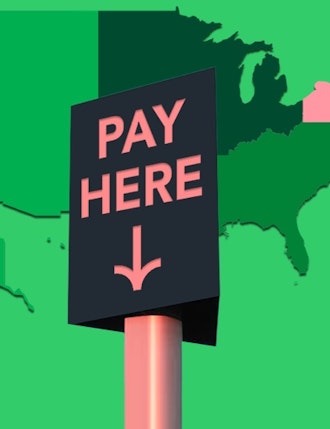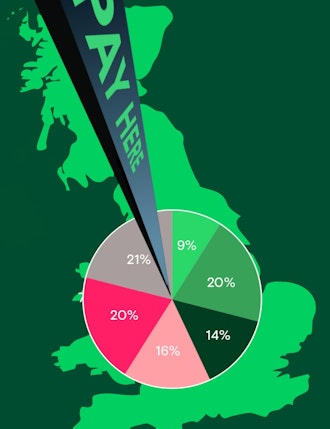As an innovator in the face-to-face payments industry, Aevi has been featured in ‘The Future of Payments’ report in The Sunday Times.
Topics included are:
- Cybersecurity
- Crypto payments and bitcoin
- Unsustainability of late payment
- “Buy Now Pay Later” schemes
- Europe’s biggest banks take on US payment providers
- Retail recovery with instant payments
- Post-lockdown pub payments changes
The past year has seen the way we make and accept payments change dramatically, and the organizations that lack the agility to adapt at speed risk being left behind. This report will act as a blueprint for business growth and recovery in a post-pandemic landscape, educating senior decision makers and consumers alike on the future of the industry.
Read our full contribution below to see how Aevi are moving forwards and embracing the future.
The traditional world of face-to-face payments is being transformed by new technology, but merchants require a unified commerce model that takes a more holistic approach.
For an industry that barely changed at all over a period of decades, face-to-face payments have been doing a lot of catching up in recent years. Card is now not just the dominant payment type – it’s the default, with mobile payments rapidly on the rise. Crucially, the pendulum of power has swung firmly toward consumers, who increasingly expect more.
Previously, the merchant decided which payment methods to accept and it was such a luxury to offer different kinds that many charged a transaction fee. But as more varied payment methods have become available, giving consumers more convenience, the expectation has grown to support them, or else lose customers to competitors that do.
Agile tech providers like Aevi are solving complexities by bringing card-not-present methodologies to the card-present world
Eddie Johnson - VP of Proposition Management | Aevi
“There’s been a huge shift in the industry,” says Eddie Johnson, head of pre-sales consultancy at Aevi, a cloud-based platform modernizing the face-to-face payments world. “It’s now the merchant’s problem if they don’t accept my payment, and it’s been accelerated by Covid and contactless becoming the preferred card interaction. Payments is traditionally a pretty slow-moving industry but that’s not going to cut it with merchants anymore.”
Despite the rise of eCommerce, face-to-face transactions still make up the large majority of payments in the UK. The rise of alternative payments, however, is fuelling homogenisation between how consumers want to pay for something online and how they want to pay in-store.
Whether consumers are interacting with a brand online or in a store, they want a seamless transacting experience. For example, they may wish to purchase online but pick up in store, or will visit a shop to look at something but complete the purchase on their smartphone. This collision between the physical and virtual worlds is creating an urgent need for all merchants to implement a unified commerce model that meets omnichannel expectations.
The shift in the way consumers are shopping means merchants require a more holistic approach to payments, which is not only compatible with alternative methods but also follows the data availability through all channels. Payments connectivity between in-store and online activity, and availability of products through all channels, will be essential for merchants to stay relevant in the post-pandemic age. Meanwhile, open banking is set to play a transformative role.
“Companies need to modernise their payments for the new commerce landscape and all of its smart, digital touchpoints, but a holistic approach is vital,” says Milon Veasey, VP sales EMEA at Aevi. “Open banking will further evolve and the role of payment service providers (PSPs) in the UK over the next two to three years is going to increase within that capability range as well. Open banking will enhance the way consumers are able to make payments and how merchants will be able to accept them.”
Milon Veasey - VP Sales EMEA | Aevi
Aevi provides merchant-facing businesses with a platform that enables them to run their business smarter by giving them easy access to any payment technology and business solution for the best in-store and omnichannel experience. By joining data and security across channels, including through APIs, the company helps create a unified commerce environment that merchants can manage through one portal.
Traditionally, the face-to-face world rounded up all the payments in a secure pipe that no one could look into until the acquirer, issuer or scheme decided they could. It lacked transparency and flexibility. Putting the Aevi Platform into the payment flow provides live data about payment transactions, which can pass through both merchant portals and online platforms so everyone can see what’s happening in real-time.
“Agile tech providers like Aevi are solving complexities by bringing card-not-present methodologies to the card-present world,” Johnson adds. “Our platform enables all payments to be supported in a face-to-face environment, without needing to re-architect your entire payments infrastructure as a merchant or even as an acquirer.”
If you want to read more about the future of payments, get your free copy of the report hosted by The Sunday Times.
Interested in reading more around this subject? Here are some useful articles…














